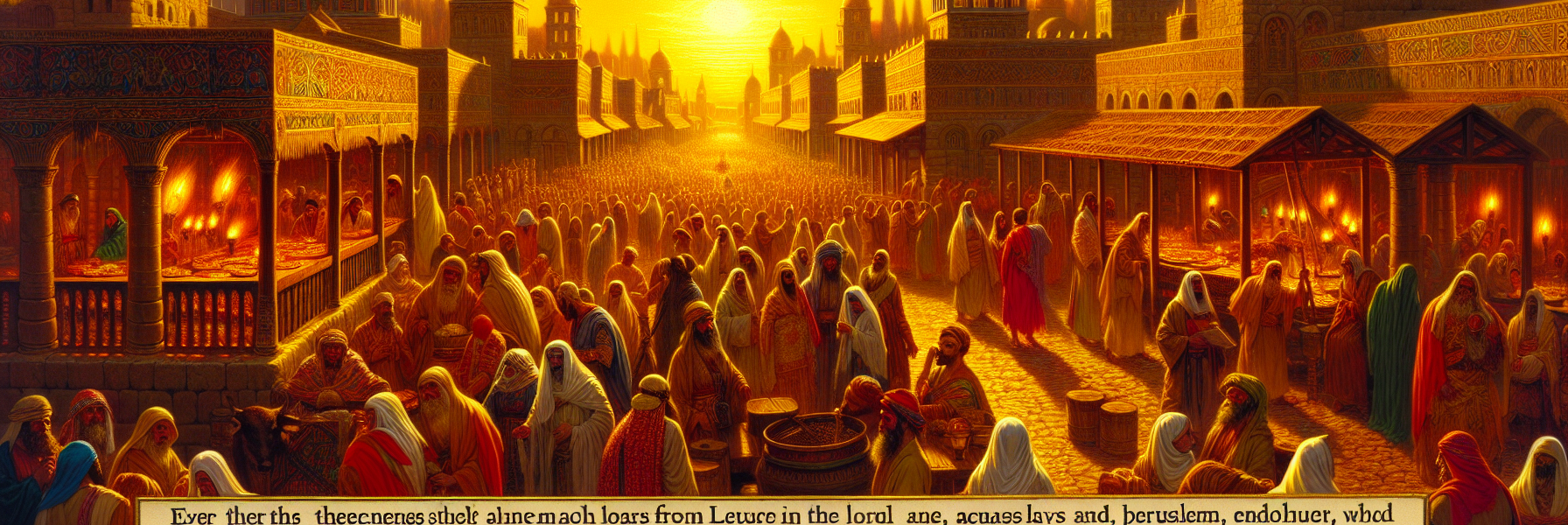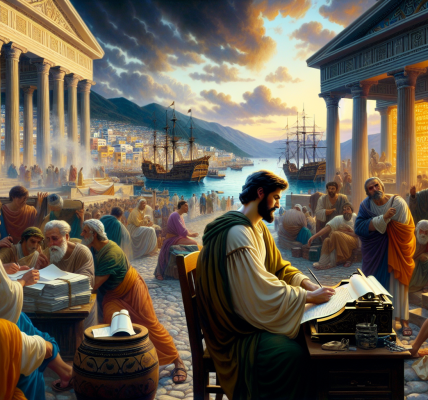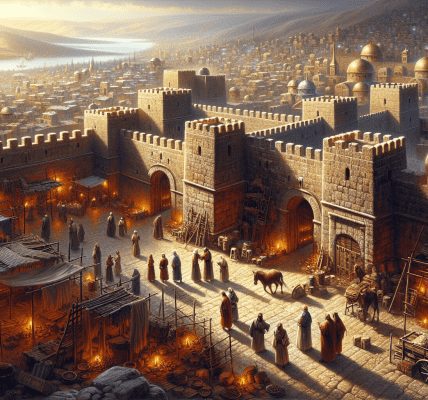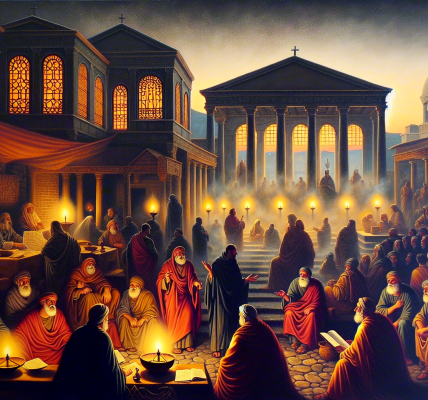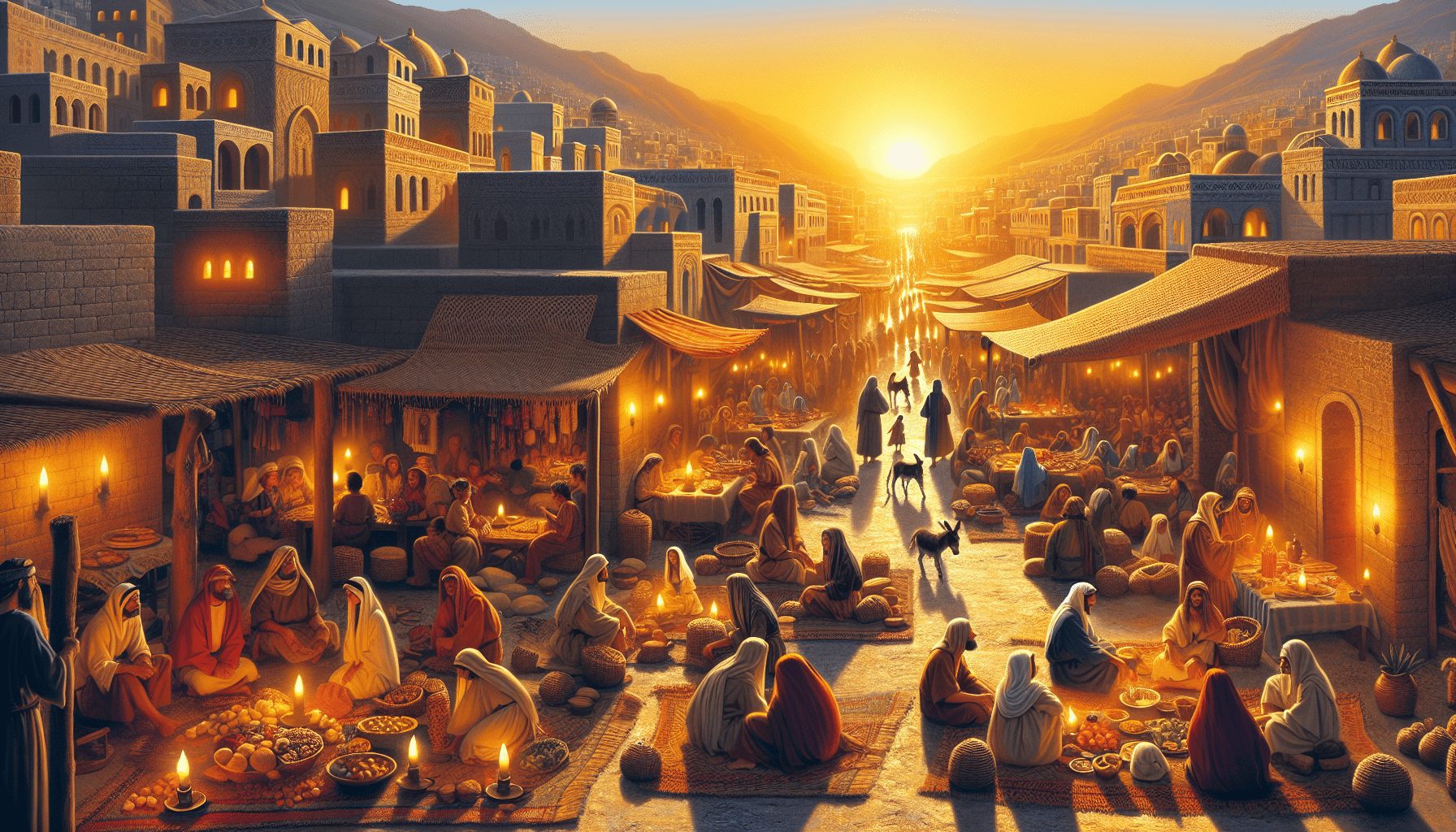**The House of Prayer for All Nations**
The sun hung low over Jerusalem, casting golden light upon the temple courts. The city buzzed with life—merchants called out their wares, pilgrims chanted psalms, and the Levites prepared for evening sacrifices. But beyond the throngs of worshippers, unnoticed by many, stood a group of outsiders—foreigners and eunuchs—lingering at the edges, their eyes filled with longing.
Among them was a man named Darius, a eunuch from a distant land. Years ago, he had been brought to Jerusalem as a servant to a nobleman. Though he had come to love the God of Israel, he had always been told that men like him—those who were maimed, those without descendants—could never be fully accepted among the Lord’s people. The law seemed clear: a eunuch could not enter the assembly of the Lord (Deuteronomy 23:1). And so, he stood at a distance, watching the faithful with quiet sorrow.
Nearby, a woman named Tamar, a foreigner from Egypt, clutched the folds of her cloak. She had heard of the God of Israel, the One who had delivered His people from bondage. She had even begun to keep the Sabbath, setting aside her work to honor Him. Yet whispers followed her in the streets: *Why does this outsider pretend to be one of us?* The priests paid her no mind, and the righteous avoided her gaze.
But the Lord saw them.
One evening, as Darius knelt in prayer outside the temple gates, a voice stirred within him—not from the lips of men, but from the Spirit of the living God. It was as though the heavens themselves spoke:
*”Do not let the foreigner who has joined himself to the Lord say, ‘The Lord will surely separate me from His people.’ And do not let the eunuch say, ‘Behold, I am a dry tree.’”*
Darius trembled. Could it be? Had the Lord truly heard his cries?
Days later, a prophet named Isaiah stood in the marketplace, his voice ringing with divine authority. Crowds gathered as he proclaimed the words of the Lord:
*”Thus says the Lord: ‘Keep justice, and do righteousness, for soon My salvation will come, and My deliverance will be revealed. Blessed is the man who does this, and the son of man who holds it fast, who keeps the Sabbath, not profaning it, and keeps his hand from doing any evil.’”*
The people murmured, but Isaiah’s gaze swept over them, settling on the faces of the foreigners and the eunuchs who lingered at the edges.
*”Let not the foreigner who has joined himself to the Lord say, ‘The Lord will surely separate me from His people.’ Nor let the eunuch say, ‘Behold, I am a dry tree.’ For thus says the Lord: ‘To the eunuchs who keep My Sabbaths, who choose what pleases Me and hold fast My covenant—I will give in My house and within My walls a memorial and a name better than sons and daughters; I will give them an everlasting name that shall not be cut off.’”*
Darius felt his heart swell. Tears streamed down Tamar’s face. The words were for them—for all who had been cast aside, yet still sought the Lord with all their hearts.
Isaiah continued, his voice rising like a trumpet:
*”And the foreigners who join themselves to the Lord, to minister to Him, to love the name of the Lord, and to be His servants—everyone who keeps the Sabbath and does not profane it, and holds fast My covenant—these I will bring to My holy mountain, and make them joyful in My house of prayer. Their burnt offerings and sacrifices will be accepted on My altar, for My house shall be called a house of prayer for all peoples.”*
The crowd stirred. Some frowned, uneasy at the thought of outsiders being welcomed as equals. But others—those who remembered the heart of God—nodded in understanding. Had not the Lord always desired mercy, not just sacrifice?
Darius stepped forward, his voice trembling but clear. “Then… the Lord accepts even me?”
Isaiah turned to him, his eyes alight with divine fire. “Yes. Not by your lineage, not by your flesh, but by your faith. The Lord does not see as man sees. He looks upon the heart.”
Tamar fell to her knees, weeping. “I have longed to serve Him. Will He truly receive my worship?”
Isaiah stretched out his hands. “Come. The altar is for all who call upon His name.”
And so, that day, something extraordinary happened. The foreigners and the eunuchs—once excluded, once scorned—entered the courts of the Lord with heads held high. Their prayers rose like incense, mingling with those of Israel. The priests, moved by the prophet’s words, did not turn them away.
For the Lord had spoken: His house would be a house of prayer for all nations.
And so it was.
